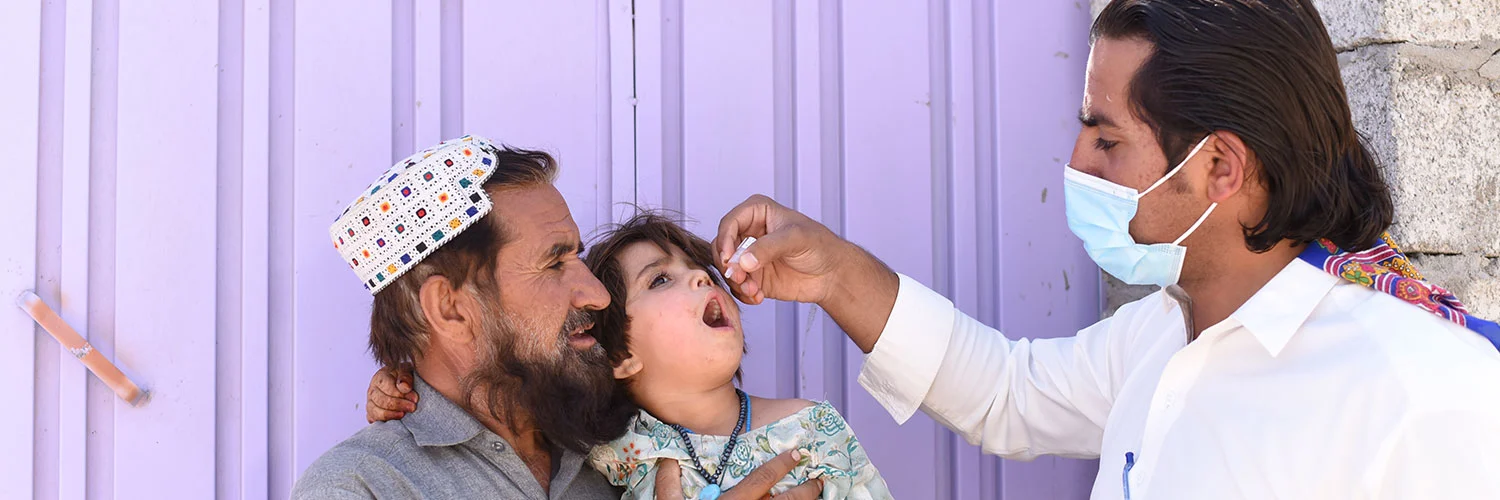Islamabad, March 6, 2024 – Wild poliovirus type 1 (WPV1) has been detected in seven sewage samples collected from seven districts.
According to the Regional Reference Laboratory at NIH, the virus was isolated from environmental samples collected from Kohat, Islamabad, Karachi Keamari, Karachi Central, Sibi, Quetta and Okara between February 13 and February 20.
All samples contained the imported YB3A poliovirus cluster, taking the number of total positive sewage samples reported from Pakistan so far this year to 46.
Federal Secretary for Health Iftikhar Ali Shallwani said that the detection of the virus in multiple samples is concerning since this disease poses a major threat to the country’s children, putting them at risk of lifelong paralysis.
“The oral polio vaccine can protect children from this devastating disease and multiple doses of the vaccine can help maintain their immunity,” he said. “A crucial vaccination campaign was conducted across the country last week ensuring protection for millions of children, while this week vaccinators are bringing polio drops to children in districts of Khyber Pakhtunkhwa.”
The health secretary added: “Refusing polio drops will only harm our precious children. I urge parents and caregivers to ensure their children’s immunization during every polio campaign to protect them from polio.”
Dr Shahzad Baig, Coordinator of the National Emergency Operations Center for Polio Eradication, said the Polio Programme has a robust poliovirus surveillance system in place which has resulted in the swift detection of the virus anywhere in the country.
“With every virus detection, we mobilize our teams and strategize on the best ways to protect children from polio in affected distrcits,” he said, adding, “To curb the virus, we have conducted two nationwide campaigns this year already and are constantly evolving our strategies to ensure that no child is left unvaccinated.”
Note for Editor:
Polio is a highly infectious disease caused by poliovirus mainly affecting children under the age of five years. It invades the nervous system and can cause paralysis or even death. While there is no cure for polio, vaccination is the most effective way to protect children from this crippling disease. Each time a child under the age of five is vaccinated, their protection against the virus is increased. Repeated immunisations have protected millions of children from polio, allowing almost all countries in the world to become polio-free, except for the two endemic countries of Pakistan and Afghanistan.
For further information, please contact: Ms Hania Naeem, Communications Officer, NEOC,
Contact No: +923431101988
Email: This email address is being protected from spambots. You need JavaScript enabled to view it.

